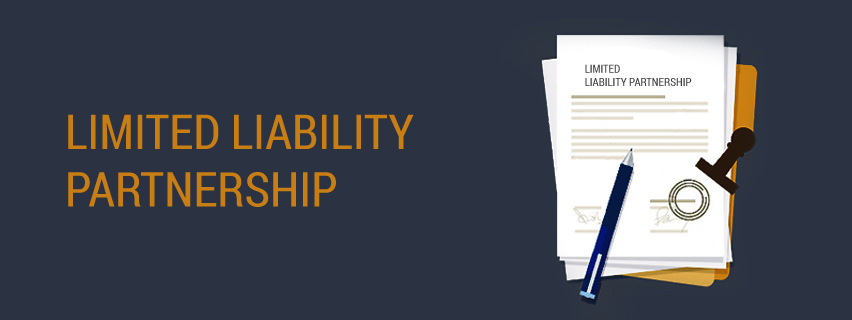Subject: Navigating Limited Liability Partnerships (LLPs) in the UK – Legal Insights and Business Practices
Dear [Recipient’s Name],
As you explore the advantages of Limited Liability Partnerships (LLPs) in the UK, it’s crucial to align your understanding with the legal framework of England and Wales. This guide aims to provide essential information on LLPs, covering legal obligations, formation, and best practices for successful operation.
Definition and Legal Structure
A Limited Liability Partnership (LLP) is a distinct legal entity where partners have limited personal liability. Unlike general partnerships, an LLP offers protection to individual partners, limiting their liability to the amount invested in the business.
Formation and Registration
Forming an LLP involves registering with Companies House, providing details such as the partnership’s name, registered office address, and the names of designated members. This registration ensures compliance with legal requirements and establishes the LLP as a separate legal entity.
Designated Members and Their Responsibilities
LLPs must have designated members who carry specific responsibilities, including filing annual financial statements and other statutory documents with Companies House. Understanding the roles and duties of designated members is vital for legal compliance.
Limited Liability and Personal Assets
One of the key benefits of an LLP is the limited liability it affords to individual partners. Personal assets of partners are protected, and their financial exposure is limited to the capital invested in the LLP.
Taxation and Reporting
LLPs are tax-transparent entities, meaning that profits and losses are typically passed through to individual partners for tax purposes. It’s essential to adhere to HM Revenue & Customs (HMRC) regulations and fulfill reporting obligations for both the LLP and individual partners.
Operating Agreement
While not a legal requirement, having a comprehensive operating agreement is advisable for LLPs. This document can outline profit-sharing arrangements, decision-making processes, and dispute resolution mechanisms tailored to the specific needs of the business.
Business Name and Branding
LLPs must adhere to naming conventions specified by Companies House. Understanding the regulations surrounding the choice of business name and branding is essential to maintain compliance and a professional image.
Changes in LLP Structure and Membership
Any changes in the structure or membership of an LLP, such as the admission or departure of partners, must be reported to Companies House. Timely and accurate reporting ensures legal transparency and compliance.
Dissolution and Winding Up
LLPs may be dissolved voluntarily or involuntarily. Understanding the procedures for dissolution, including settling debts, distributing assets, and notifying authorities, is crucial for a smooth winding-up process.
Legal Updates and Compliance
Given the evolving legal landscape, staying informed about changes in LLP regulations and compliance requirements is essential. Regularly reviewing and updating your LLP’s operating agreement ensures alignment with current legal standards.
We trust that this guide provides valuable insights into the legal aspects of Limited Liability Partnerships in the UK. Should you have specific questions or require professional assistance, we recommend seeking legal advice tailored to your LLP’s unique circumstances.
Best regards,
[Your Name] [Your Position] [Your Contact Information]
What is a Limited Liability Partnership (LLP), and how does it differ from other business structures?
An LLP is a distinct legal entity that combines features of partnerships and limited companies. It offers limited personal liability to its members, protecting their personal assets while allowing flexibility in management compared to a limited company.
How is an LLP formed in the UK?
Forming an LLP involves registering with Companies House. The process includes providing details such as the business name, registered office address, and the names of designated members. Registration establishes the LLP as a separate legal entity.
What are designated members in an LLP, and what are their responsibilities?
Designated members are individuals within an LLP responsible for ensuring legal compliance. Their duties include filing annual financial statements, maintaining accurate records, and notifying Companies House of any changes in the LLP’s structure.
How does limited liability work in an LLP?
In an LLP, individual members enjoy limited liability, meaning their personal assets are protected. Their financial exposure is limited to the capital they have invested in the LLP, reducing personal risk in case of business debts or legal issues.
What are the tax implications for LLPs and their members?
LLPs are tax-transparent entities, and profits and losses are usually passed through to individual members for tax purposes. Members report their share of profits on personal tax returns, and the LLP must adhere to HM Revenue & Customs (HMRC) regulations.
Is an operating agreement necessary for an LLP?
While not a legal requirement, having an operating agreement is advisable for LLPs. This document outlines key aspects of the partnership, including profit-sharing arrangements, decision-making processes, and dispute resolution mechanisms.
How are changes in the membership or structure of an LLP handled?
Any changes, such as admitting or removing members, must be reported to Companies House. Timely reporting ensures legal transparency, and specific procedures should be followed to update records and maintain compliance.
Can an LLP be dissolved, and what is the process for winding up?
LLPs can be dissolved voluntarily or involuntarily. The process involves settling debts, distributing assets, and notifying relevant authorities. Understanding the procedures is crucial for a smooth winding-up process.
Can an LLP change its business name, and are there restrictions?
LLPs can change their business name, but there are naming conventions regulated by Companies House. Understanding these restrictions ensures compliance and avoids potential legal issues related to business identity.
How can an LLP stay compliant with legal regulations and updates?
Staying informed about changes in LLP regulations and compliance requirements is crucial. Regularly reviewing and updating the LLP’s operating agreement, adhering to reporting obligations, and seeking legal advice when needed contribute to ongoing compliance.
- Pay-Per-Click Management Service Agreement - July 18, 2024
- Website Minor Work Agreement - July 15, 2024
- Website Design Change Order Form - July 15, 2024









